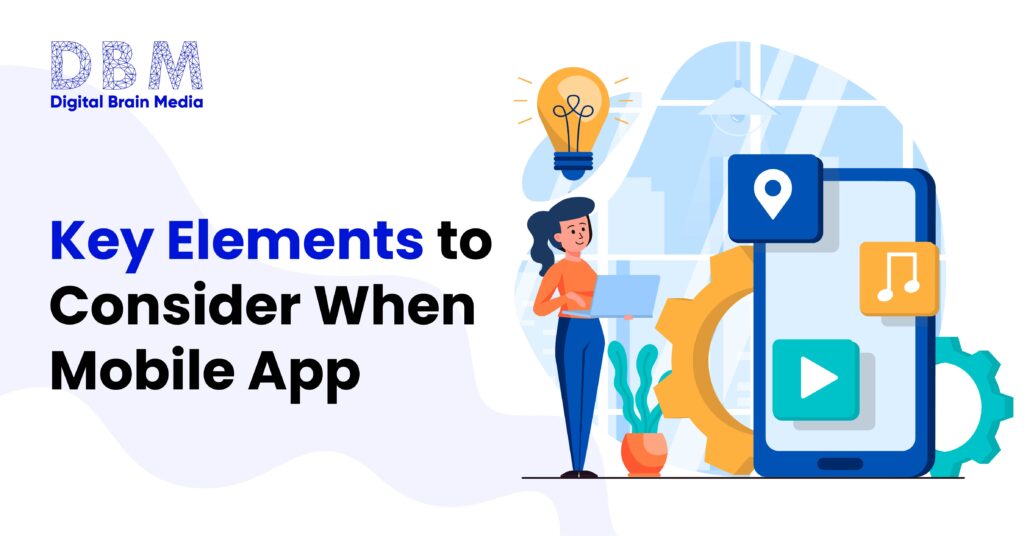
Introduction
Step right up and place your bets! Gambling: it’s a thrill, a rush, a tantalizing dance with Lady Luck herself. But have you ever wondered why people are drawn to this exhilarating pastime?
What is it about the flashing lights and ringing bells that lures us in, time and time again? Today, we delve into the fascinating world of gambling psychology – exploring the complex web of emotions, motivations, and instincts that drive people to roll the dice or spin the wheel.
Here being a top mobile game development company, we will help you to determine everything.
1. What is the physiology behind gambling?
The physiology behind gambling is a fascinating subject that delves into the inner workings of the human brain. When it comes to placing bets and taking risks, our brains undergo a series of complex processes.
Gambling triggers the release of dopamine in our brains. Dopamine is a neurotransmitter associated with pleasure and reward, creating feelings of excitement and anticipation when we gamble. This surge in dopamine can be addictive, leading people to seek out more gambling experiences.
The act of gambling activates the brain’s reward system. The possibility of winning money or prizes stimulates this system, causing a rush of positive emotions. Our brains are wired to seek out rewards and avoid losses, making gambling an enticing activity for many individuals.
Furthermore, engaging in gambling can also provide an escape from reality. It offers an opportunity to temporarily forget about life’s challenges and immerse oneself in a world where luck and chance reign supreme.
In addition to these psychological factors, there are biological components at play as well. Research has shown that some individuals may have a genetic predisposition towards addiction or impulsivity, which could make them more susceptible to developing problematic gambling behaviors.
- Understanding the physiology behind gambling helps shed light on why people are drawn to this activity.
- It combines elements of pleasure-seeking behavior with the allure of potential rewards and escapism from everyday life.
2. The gambling and substance use connections
The gambling and substance use connections have long intrigued researchers and psychologists alike. It is not uncommon to find individuals who struggle with both forms of addiction simultaneously. But what is it about these two activities that make them so closely intertwined?
One possible explanation lies in the neurological similarities between gambling and substance use. Both activities stimulate the brain’s reward system, releasing dopamine which creates feelings of pleasure and reinforces a desire for more. This can lead to a cycle of cravings and compulsive behavior.
Moreover, there are psychological factors at play as well. Many individuals turn to gambling or substance use as a means of escape from their problems or emotional distress. The temporary relief they experience provides an illusion of control or coping mechanism, albeit fleeting. Digital brain media has best game app developers, our experts are well-versed with the latest trends and technologies to help,
However, it’s important to note that not everyone who gambles will develop a substance abuse problem, and vice versa. Each individual’s journey with addiction is unique, influenced by various personal factors such as genetics, environment, and mental health.
Understanding the connections between gambling and substance use can help us better address these issues within society. By recognizing the underlying motivations behind addictive behaviors, we can provide targeted interventions and support systems for those in need.
Your Adventure Awaits –Contact US Today!
3. Psychological
Psychological factors play a significant role in understanding why people gamble. The thrill, excitement, and anticipation that come with gambling can be incredibly enticing to individuals seeking an escape from their daily lives. For many, it provides a temporary break from reality and offers the possibility of achieving financial success.
One psychological aspect behind gambling is the concept of risk-taking behavior. Some individuals are naturally inclined to take risks, seeking out new experiences and sensations. Gambling provides them with an avenue to satisfy this need for excitement and novelty.
Additionally, the psychology of gambling often involves cognitive distortions or biased thinking patterns. Many gamblers tend to overestimate their chances of winning while underestimating the likelihood of losing. This optimistic bias fuels their desire to continue playing despite mounting losses.
Moreover, gambling can serve as a form of self-medication for individuals experiencing emotional distress or mental health issues such as anxiety or depression. The temporary relief provided by the rush of adrenaline during gameplay can help distract from underlying problems temporarily.
Furthermore, social factors also contribute significantly to the psychology behind gambling. Peer influence and societal norms play a role in shaping an individual’s perception towards betting activities. Seeing others engage in gambling can normalize this behavior and make it more socially acceptable.
Understanding these psychological aspects helps shed light on why people gamble but should not be used as an excuse for problematic behaviors associated with excessive betting habit. Hiring android game development, service provider like us will be helpful.
4. Biological
Biological factors play a significant role in understanding the psychology of gambling. Our brain chemistry and genetics can influence our propensity for risk-taking behaviors, including betting.
One key factor is the release of dopamine, a neurotransmitter associated with pleasure and reward. When we engage in activities that provide excitement or anticipation, such as gambling, dopamine floods our brain’s reward center. This surge creates a pleasurable sensation and reinforces the desire to continue gambling.
Moreover, studies have shown that individuals with certain genetic variations may be more susceptible to developing addictive tendencies towards gambling. These genetic factors can affect how our brains respond to rewards and make us more prone to seeking out thrilling experiences.
Additionally, research has revealed similarities between substance use disorders and problem gambling at a biological level. Both activities activate similar neural pathways involved in reward processing and decision-making. This connection suggests that individuals who are vulnerable to addiction may be predisposed to both substance abuse and excessive gambling.
Understanding these biological underpinnings helps shed light on why some people are more likely than others to develop problematic gambling habits. By recognizing the role of biology in shaping addictive behaviors, researchers can work towards developing targeted interventions for prevention and treatment strategies.
Investigating the biological aspects of gambling provides valuable insights into why people gamble compulsively or become addicted to it. However, it is important to note that biology is just one piece of the puzzle; psychological factors also contribute significantly to understanding this complex behavior pattern.
5. Gambling addiction in 4 Steps
Gambling addiction is a complex issue that can develop over time through a series of steps. Understanding these steps can shed light on why some individuals become trapped in the cycle of gambling.
The first step towards gambling addiction often starts with winning. Winning provides a rush of excitement and a sense of euphoria, which triggers the brain’s reward system. This positive reinforcement encourages individuals to continue gambling in search of that same high.
However, as with any form of gambling, losing is inevitable. The second step occurs when individuals start to experience losses but still hold onto the hope that they will win big again. They may chase their losses by increasing their bets or spending more time and money on gambling activities.
As losses accumulate, desperation sets in during the third step. Individuals may resort to borrowing money from friends or family members, taking out loans, or even engaging in illegal activities to finance their habit. This desperate behavior demonstrates how vulnerable people become when caught up in the grip of addiction.
In the final step, hope emerges as a key driving force for continued gambling despite mounting consequences. Even after experiencing significant financial and personal losses, individuals believe that one big win could solve all their problems and bring back everything they have lost.
Understanding these steps helps us grasp how easily someone can fall into the trap of gambling addiction without realizing it until it’s too late. It highlights the importance of early intervention and support systems for those struggling with this issue.
Unlock New Levels – Upgrade Now!
5.1 Winning
Winning. The thrill of victory, the rush of adrenaline coursing through your veins. It’s a feeling like no other, and it’s what keeps many people coming back for more when it comes to gambling.
When you win at gambling, even if it’s just a small amount, there is an immediate sense of accomplishment and validation. You start to believe that you have some sort of special talent or luck that sets you apart from others. Your confidence soars as you bask in the glory of your success.
But winning can also be dangerous. It can create an illusion that gambling is easy and profitable, leading to risky behavior and larger bets. This overconfidence can quickly lead to losses and addiction.
However, for some people, winning becomes an obsession. They become addicted to the high they get from winning and will do anything to experience that feeling again. They may chase their losses or engage in risky behaviors in order to increase their chances of winning big.
In the moment of victory, all worries fade away and all that matters is the excitement and satisfaction brought on by winning. But unfortunately, this feeling doesn’t last forever.
Whether they realize it or not, those who become fixated on winning are often seeking more than just monetary gain – they crave validation from others as well as themselves. Winning provides them with a temporary escape from reality where they feel accepted and successful.
So next time you find yourself caught up in the allure of winning at gambling, take a step back and consider why exactly you are chasing this sensation. Is it truly about money? Or is there something deeper driving your desire for triumph?
Remember that while winning may bring temporary joy and excitement into your life, true happiness lies elsewhere – perhaps in meaningful relationships or personal accomplishments outside the realm of chance.
Stay tuned for our next blog section where we explore another aspect behind why people gamble: losing!
5.2 Losing
Losing is an inevitable part of gambling. It’s that dreaded moment when the cards don’t fall in your favor, or the roulette wheel spins to a disappointing outcome. Losing can be frustrating, disheartening, and even devastating for some individuals.
When it comes to gambling, losing can have a profound psychological impact. The anticipation and excitement that builds up during gameplay suddenly turns into disappointment and regret. It triggers emotions like anger, sadness, and self-blame.
Psychologically speaking, losing activates the brain’s reward system in a different way than winning does. While winning releases dopamine – the feel-good hormone associated with pleasure – losing activates areas of the brain linked to processing negative emotions.
Biologically speaking, losing can also trigger stress responses in the body. The surge of adrenaline experienced during gameplay starts to dissipate as defeat sets in. This sudden shift from anticipation to disappointment can lead to feelings of anxiety and restlessness.
Despite these negative consequences, many gamblers find it difficult to walk away after experiencing loss. They may become caught up in what is known as “chasing losses,” believing that their luck will eventually turn around if they just keep playing.
In this pursuit of regaining what was lost, desperation often takes hold. People may start taking bigger risks or making irrational decisions with hopes of recouping their losses quickly.
But amidst all this despair lies hope – hope for redemption and turning things around. Even after facing numerous losses, gamblers cling onto optimism that their fortunes will change with each new bet placed.
It’s important to note that not everyone who gambles will develop an addiction or experience significant losses; however understanding why people gamble helps shed light on how easily individuals can get caught up in a cycle of chasing wins while enduring repeated defeats.
5.3 Desperation
Desperation is a powerful emotion that can drive people to make irrational decisions, and gambling addiction often leads individuals down this path. When someone becomes desperate in their gambling habit, they are willing to do whatever it takes to recoup their losses or experience the thrill of winning again.
In the midst of desperation, rational thinking goes out the window. The individual may start taking bigger risks, placing larger bets, and chasing losses with reckless abandon. They become consumed by their need for a win at any cost.
Desperation can also lead to destructive behaviors outside of gambling itself. In order to fund their addiction or cover up their losses, some individuals may resort to stealing from loved ones or engaging in illegal activities.
The feeling of hopelessness that accompanies desperation is overwhelming. The person may begin isolating themselves from others and neglecting responsibilities in favor of spending more time at the casino or online betting sites.
Unfortunately, desperation only perpetuates the cycle of gambling addiction. As losses continue to mount and financial resources dwindle, feelings of despair intensify even further.
It’s important to recognize that desperation is not a sustainable solution for those struggling with gambling addiction. Seeking professional help and support systems is crucial in breaking free from this destructive pattern.
Remember, if you or someone you know is experiencing desperation due to gambling addiction, reach out for help immediately. There are resources available that can provide guidance and support on the journey towards recovery.
5.4 Hope
Hope is a powerful force that drives many gamblers to continue placing bets, despite the odds being stacked against them. It’s the belief that their luck will change, and they will finally hit the jackpot. Hope can be both a blessing and a curse in the world of gambling.
In those fleeting moments when a gambler experiences even a small win, hope is reinforced. They start to believe that if they keep playing, more winnings are just around the corner. This glimmer of hope keeps them coming back for more, fueling their desire to beat the odds.
Unfortunately, hope can also lead to false expectations and unrealistic dreams. Gamblers may convince themselves that one big win will solve all their financial problems or bring them happiness. This kind of thinking can be dangerous as it perpetuates compulsive gambling behavior.
For some individuals with gambling addiction, hope becomes their lifeline. It’s what sustains them through countless losses and fuels their determination to keep trying until they hit that elusive jackpot. They cling onto this hope because it offers an escape from reality and promises a better future.
However, it’s important to remember that relying solely on hope in gambling can be risky and potentially harmful. While occasional wins may provide temporary satisfaction, continued betting based purely on hope often leads to financial ruin and emotional distress.
Understanding how hope plays into the psychology of gambling allows us to recognize its potential dangers while also acknowledging its significance in motivating individuals to place bets time after time.
6. Can gambling addiction be treated
Gambling addiction is a serious issue that can wreak havoc on a person’s life. But the question remains: Can it be treated? The good news is that yes, gambling addiction can be treated with the right approach and support.
Treatment for gambling addiction often involves a combination of therapies and interventions. One common method is cognitive-behavioral therapy (CBT), which helps individuals identify their triggers and develop healthier coping mechanisms. CBT also aims to change negative thought patterns associated with gambling.
In addition to therapy, support groups such as Gamblers Anonymous can provide crucial peer support and guidance in recovery. These groups offer a safe space for individuals to share their experiences, receive encouragement, and learn from others who have overcome similar challenges.
Medication may also be prescribed in some cases to help manage underlying mental health conditions that contribute to gambling addiction, such as depression or anxiety.
It’s important to note that treatment outcomes vary from person to person. Some individuals may find success early on in their recovery journey while others may require ongoing support over an extended period of time. The key lies in finding what works best for each individual and providing them with the necessary tools for long-term success.
So if you or someone you know is struggling with a gambling addiction, remember that there is hope for recovery. Reach out for help today and take the first step towards regaining control of your life
Unlock New Levels – Upgrade Now!
Conclusion
Understanding the psychology of betting and why people gamble is a complex subject with various factors at play. From the thrill of winning to the desperation that can come from losing, gambling triggers emotional and psychological responses in individuals. We are one of the top android game development company to assist either startup or entreprises in their requirements.
The physiology behind gambling involves both psychological and biological elements. The connections between gambling and substance use highlight how these activities can activate similar reward pathways in the brain. This understanding helps shed light on why some individuals may be more prone to developing addictive behaviors.
Gambling addiction typically follows a pattern that includes phases of winning, losing, desperation, and hope. Each stage elicits different emotions and motivations for continuing to gamble. It is important to recognize these patterns to identify potential signs of addiction early on.
While there are no guaranteed treatments for gambling addiction, there are options available for those seeking help. Support groups, therapy sessions, self-help strategies, and even medications can all contribute towards managing this challenging condition.
It is crucial to remember that not everyone who gambles will develop an addiction. However, it is essential to understand the underlying reasons why people engage in this behavior in order to provide appropriate support and interventions when needed.
By delving into the psychology behind gambling, we gain insights into human behavior as well as potential risk factors for addictive tendencies. With greater awareness comes better understanding—and hopefully more effective prevention measures—for those who struggle with problem gambling.
So whether you’re a casual bettor or someone concerned about their own or others’ excessive gambling habits, taking steps towards education and support can make a significant difference in promoting healthier choices around this popular pastime. However, it is advisable for businesses to create own game app, in this manner a desired growth can be achieved.







